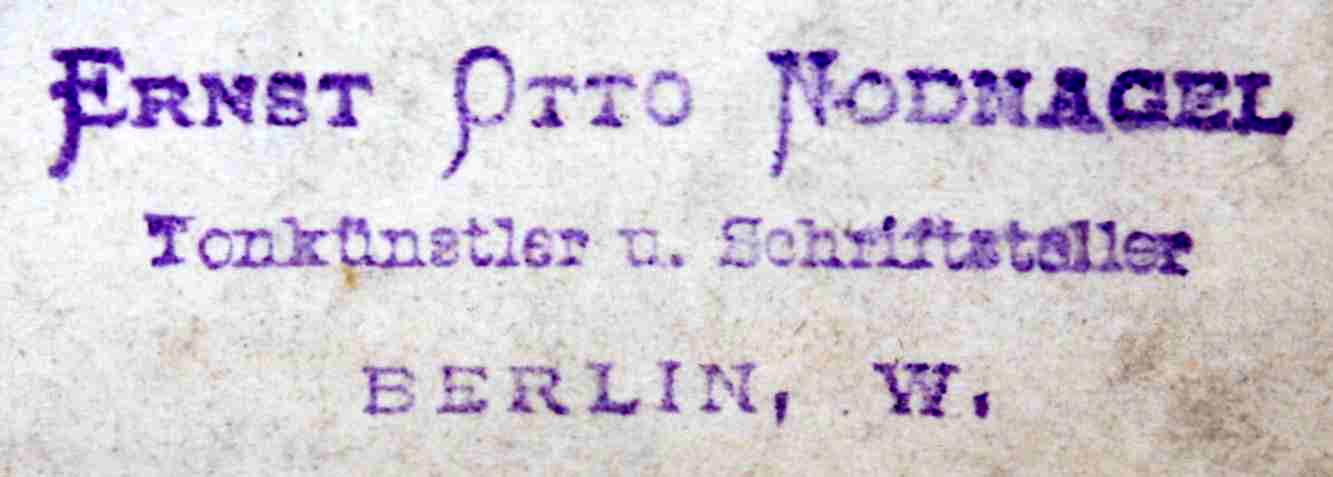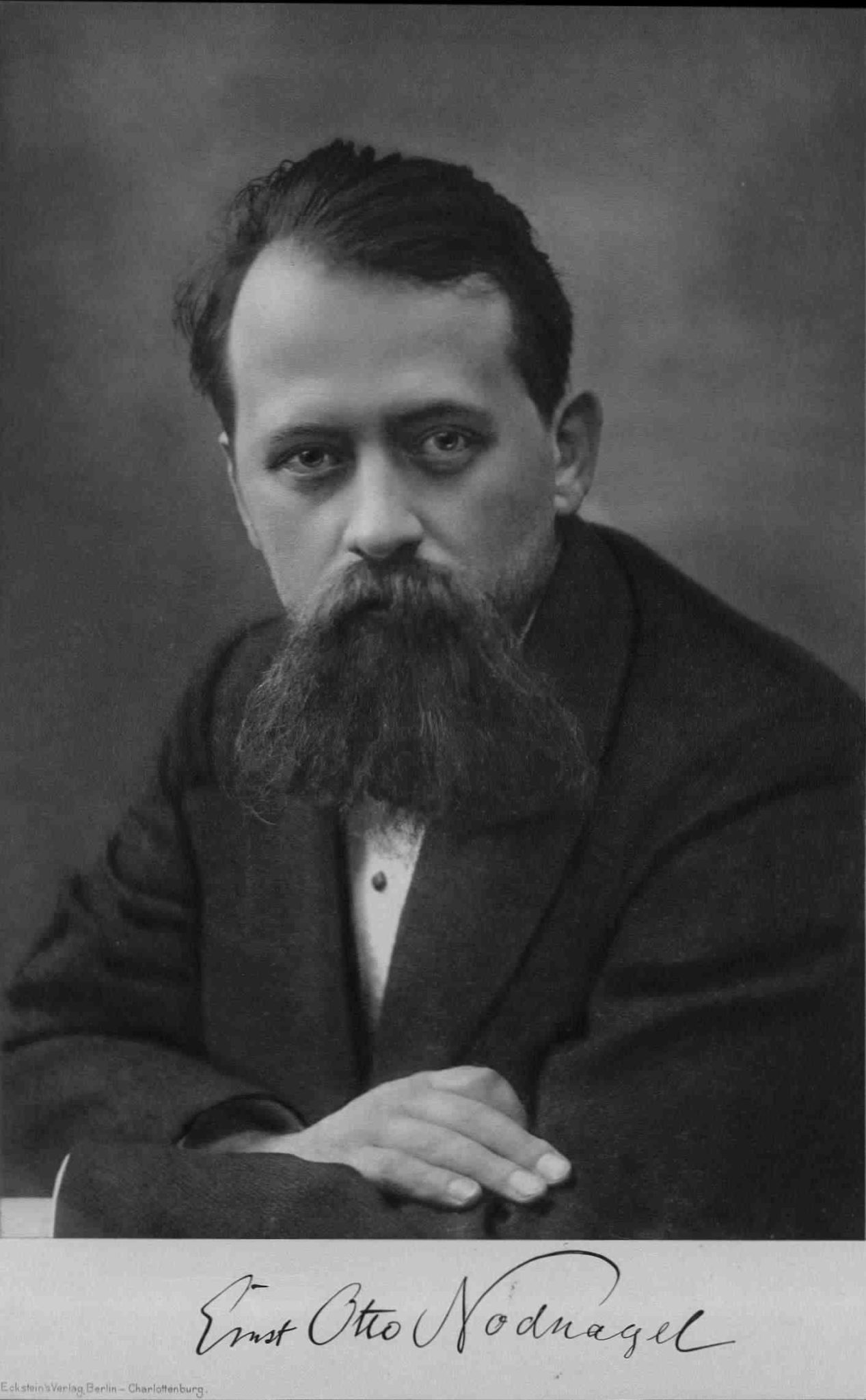Ernst Otto Nodnagel (1870-1909).
- Profession: Composer, singer, music critic Berliner Tageblatt
- Residences: Hamburg
- Relation to Mahler: One of Mahler’s earliest admirers
- Correspondence with Mahler: Mentioned by Gustav Mahler in a letter to Annie Sommerfeld-Mincieux (1857-1937) (00-05-1896, Year 1896): ‘My kindest regards to Herr Nodnagel, that born disciple’.
- Born: 16-05-1870 Dortmund, Germany
- Died: 25-03-1909 Brandenburg, Berlin, Germany (aged 38)
- Buried:
- On 1902 Mahler called him the ‘enevitable’ Nodnagel.
- Promotor of Symphony No. 4.
- Mahler forbade Nodnagel to publish detailed analyses of Symphony No. 2 and Symphony no. 5 in ‘Die Musik’. However, an analysis of Symphony No. 5 was issued seperately by Peters music publishers.
He studied law and music in Heidelberg, perfecting from 1890 to 1892 in his musical knowledge at the Royal Academy in Berlin. In 1899 he was appointed as Professor of singing at the Konigsberg Conservatory (now Kaliningrad), a post he held until 1903, and was presented as a singer in several concerts.

Ernst Otto Nodnagel (1870-1909) stamp.
His works on musical criticism were published in theOstpreussische ZTG., and as a composer he is owed: several Lieder Of Modernist Tendencies: symbolinen or Symphonic poems (vom Tapfern schneiderlein and Adultera); Songs with orchestra accompaniment, such as Neurotika, Impresionen, Abschiedsgesange, etc., to be printed.
In addition to the articles appearing in the aforementioned magazine: Jenseits von Wagner und Liszt (1902), Versimpelung der Musikkritk (1903), Stimmbildung und Staat (1903), Aus dem Gemerke (1904), and the novel Käthe Elsinger (1905).
Review Ernst Otto Nodnagel (1870-1909) of 1896 Concert Berlin 16-03-1896 – Symphony No. 1, Todtenfeier, Lieder eines fahrenden Gesellen (Premiere):
For the fourth performance, along with the removal of the second ‘Blumine’ movement, Mahler discarded all programmatic aspects of the work, instead opting to present the work as ‘absolute music’. He settled on the simple title: ‘Symphony in D Major’, also removing the extensive movement titles. Mahler conducted this fourth performance on 16th March 1896 in Berlin. The composer and music critic Ernst Otto Nodnagel (1870-1909), approved of these major revisions which addressed previous criticisms he had raised in his review of the 2nd performance (published in the Berliner Tageblatt and Magazin für Litteratur), regarding the confusing programme notes and the “Trivial” ‘Blumine’ movement. He wrote that the latest version of the work received “lively approval, even from part of the hostile press.”
However, the symphony still did not achieve the response Mahler felt his work deserved. Natalie Bauer-Lechner (1858-1921) who was in attendence of the concert described the unremarkable audience reception as “rather warm and affirmative” adding that Mahler detected “the cold effect on the listener” repeating “most sadly”: “No, they have not understood it!”.



